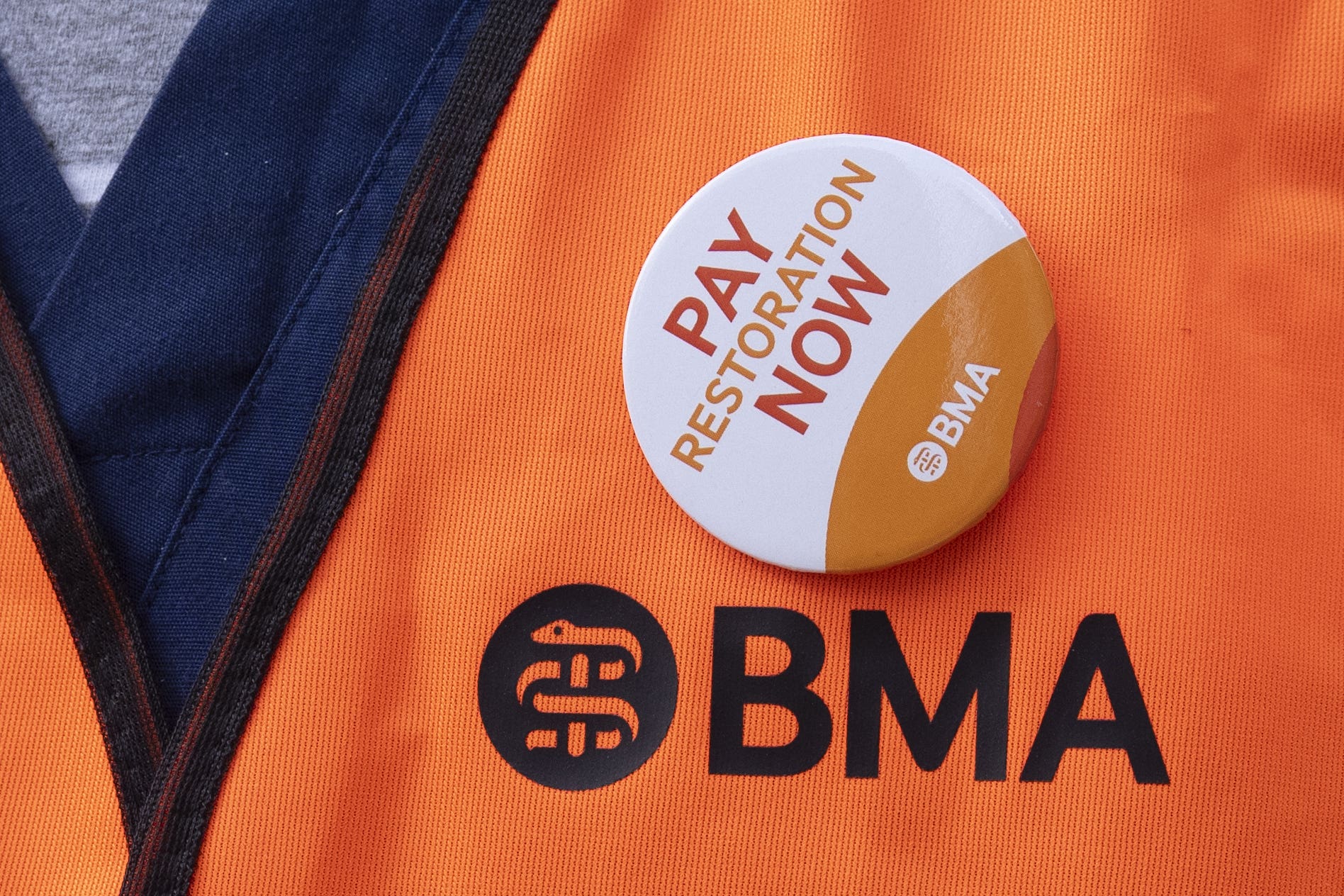Junior doctors stage ‘unprecedented’ strike – what do I need to know?
The industrial action is a major escalation in the dispute between unions and the Government over pay.

Your support helps us to tell the story
From reproductive rights to climate change to Big Tech, The Independent is on the ground when the story is developing. Whether it's investigating the financials of Elon Musk's pro-Trump PAC or producing our latest documentary, 'The A Word', which shines a light on the American women fighting for reproductive rights, we know how important it is to parse out the facts from the messaging.
At such a critical moment in US history, we need reporters on the ground. Your donation allows us to keep sending journalists to speak to both sides of the story.
The Independent is trusted by Americans across the entire political spectrum. And unlike many other quality news outlets, we choose not to lock Americans out of our reporting and analysis with paywalls. We believe quality journalism should be available to everyone, paid for by those who can afford it.
Your support makes all the difference.Junior doctors in England have begun the longest strike in NHS history.
Here are your questions answered about the walkouts.
– What is happening?
Junior doctors in England are to go on strike for six whole days – the longest strike in NHS history – in a major escalation in the dispute between unions and the Government over pay.
Medics in training from the British Medical Association (BMA) and the Hospital Consultants and Specialists Association (HCSA) are striking from January 3 at 7am to 7am on January 9.
– Which NHS services will be affected?
Almost all pre-planned (elective) hospital services will be affected by strikes as the NHS shifts all of its focus to urgent and emergency care.
– What should I do if I’m sick?
Health officials have stressed that people should still seek help if they are unwell. GP and pharmacy services will be unaffected by the industrial action and people are being urged to use these services as they would normally.
Patients can also use 111 online, or call 111.
Those with life-threatening emergencies should still call 999 and use A&E as normal.
– Why are commentators saying the strikes have come at a bad time for the NHS?
The week after new year festivities is usually among the busiest for the NHS in the year.
There is usually a rise in people with winter viruses, including flu, norovirus and Covid-19.
And a number of people put off seeking help during the holidays, which leads to a rise in the number contacting services afterwards.
– Why are doctors on strike?
In summer 2023, the Government gave junior doctors in England an average rise of 8.8%, but medics said the increase was not enough to address pay erosion doctors had seen over the last 15 years.
It seemed as though the dispute may come to a close when junior doctors and the Government entered talks in late 2023.
But after five weeks of intense negotiations, the talks broke down and the BMA announced strike dates for December and January.
– What is happening elsewhere in the UK?
Junior doctors in Wales are planning a 72-hour walkout from January 15, while doctors in training in Northern Ireland are being balloted for potential strike action. Those in Scotland have already come to an agreement with the Scottish government.
– What about other doctors?
Consultants and specialty and associate specialist (SAS) doctors have agreed a deal with the Government, which is now being put to members.
– Are there any other strikes called?
As of yet, no further strikes have been called in England. Hospital leaders and health officials will hope that talks between the Government and the BMA will resume as soon as the strikes conclude on January 9.
– Who are junior doctors?
The term “junior doctor” is used to refer to all doctors who are in training. This includes people who are straight out of medical school but also includes doctors who have been working in the NHS for almost a decade. They make up about half of the medical workforce in England.